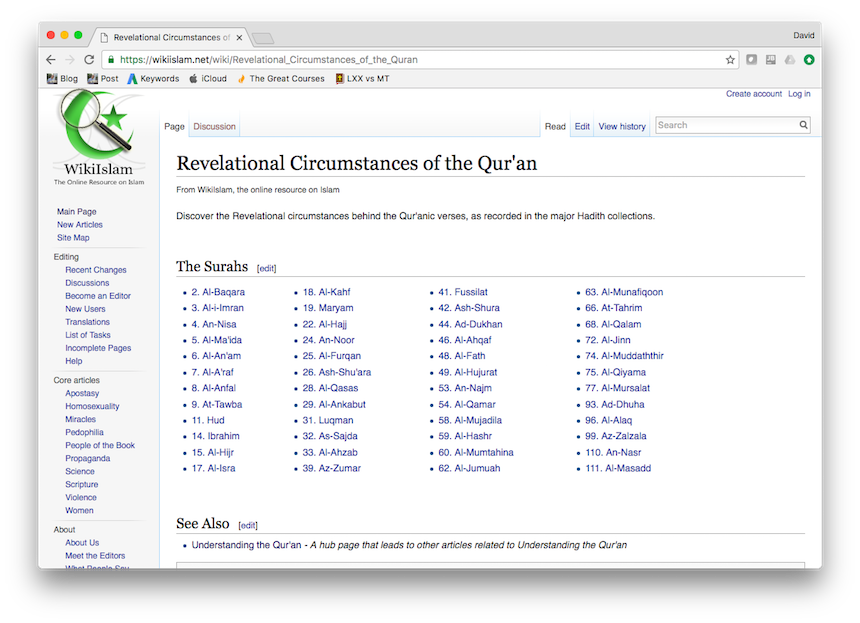
Happy Christmas everyone! I hope your day is filled with joy. As for me, I’m working my way through a very long chapter of the Qur’an…
Surah 17 – “The Night Journey” (Al-Isra)
This chapter begins with an brief reference to event which gives its name to this chapter: The Night Journey. We are told that, in a single night, Muhammad travelled from Mecca to Jerusalem. There’s a second journey made later that night to Heaven, but it is not mentioned in this chapter.
Then begins some teaching concerning the Children of Israel. We are told that Allah “gave Moses the Scripture and made it a guidance for [them]”. Again, there is no indication that the Hebrew scriptures have been corrupted at all.
After a brief mention of Noah, we are told that Allah told the Children of Israel that they would “surely cause corruption on the earth twice” and he promised punishment on both of these occasions.
1. On the first occasion, Allah promised that a servant of His, someone with great military power, would invade their homes. He then promised that the Israelites would eventually be victorious.
2. On the second occasion, Allah sent enemies who entered the Jerusalem Temple and destroyed it.
I’m not exactly sure which events are being described here, since we are given very little information. The destruction of the Temple was done first by the Babylonians and then by the Romans.
Read more











